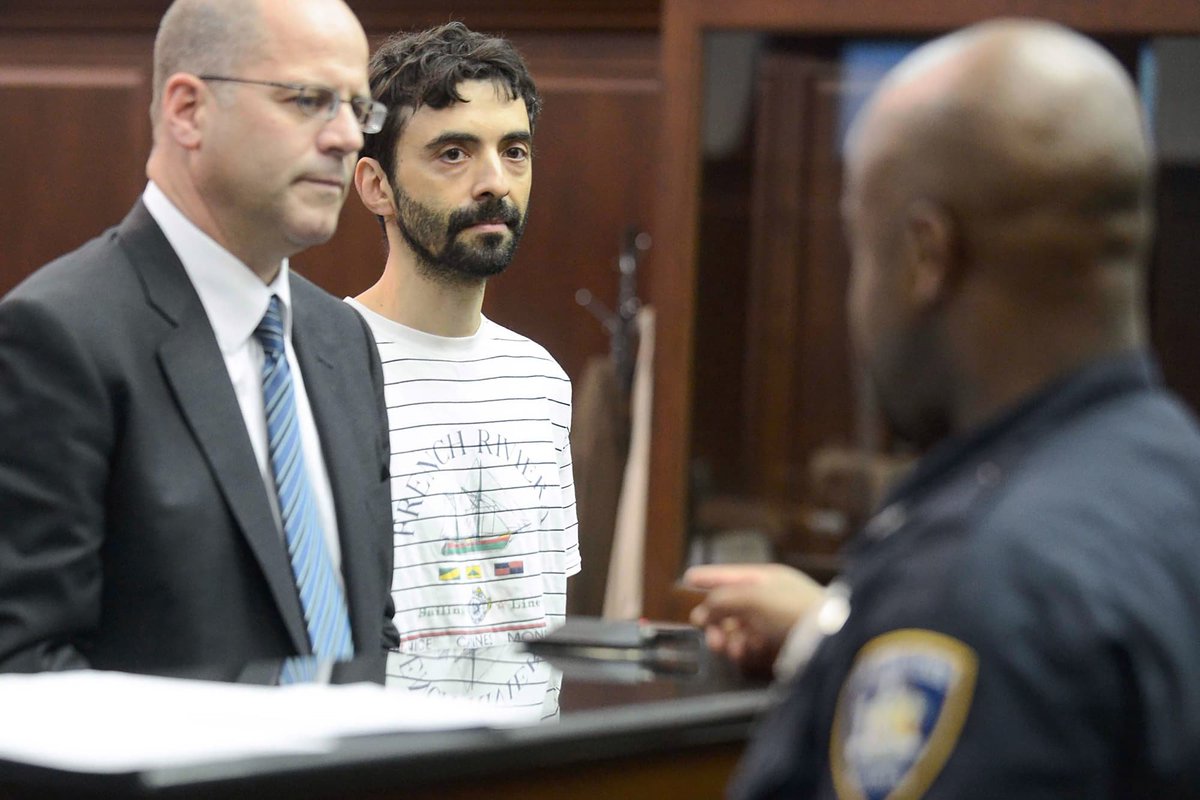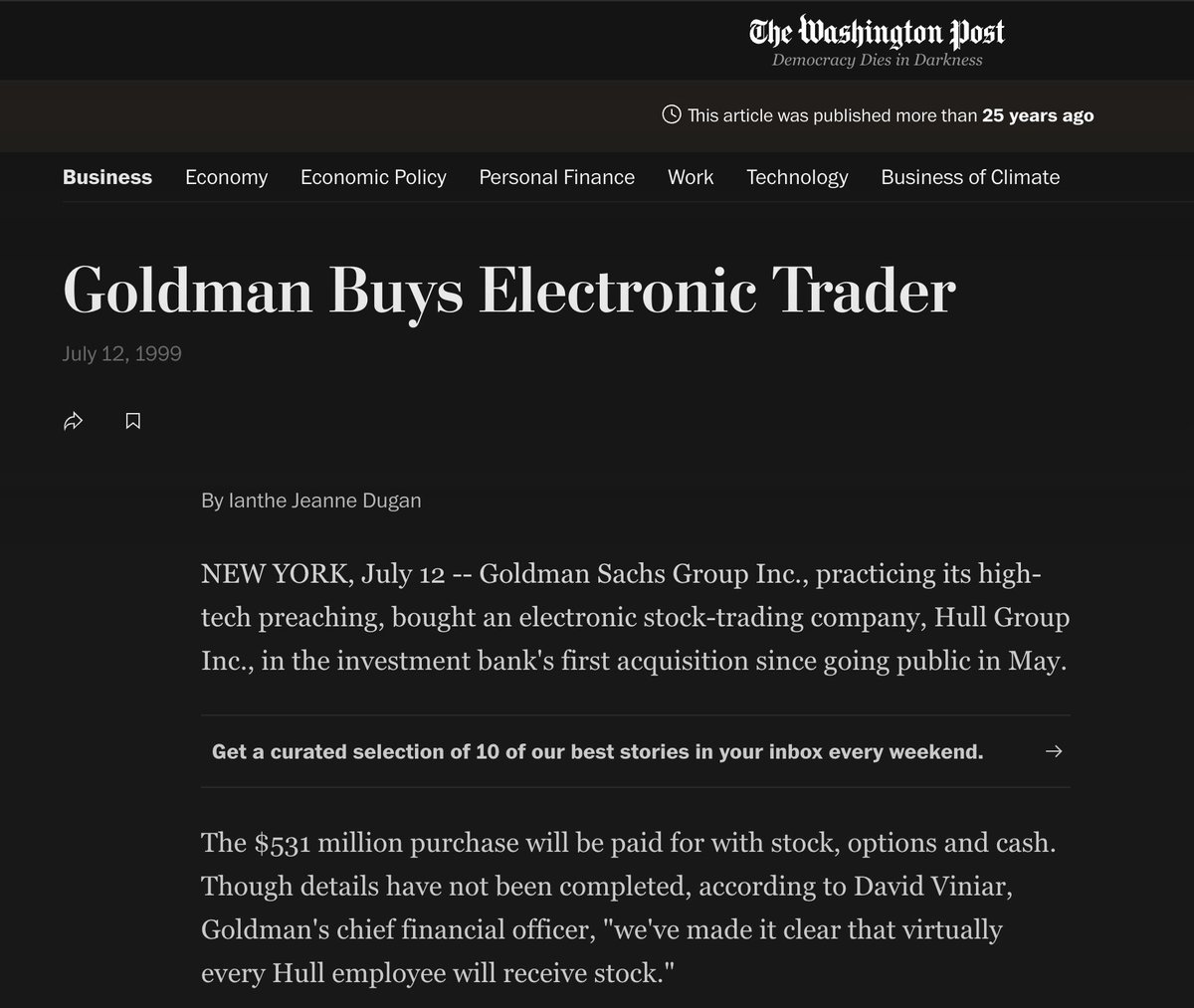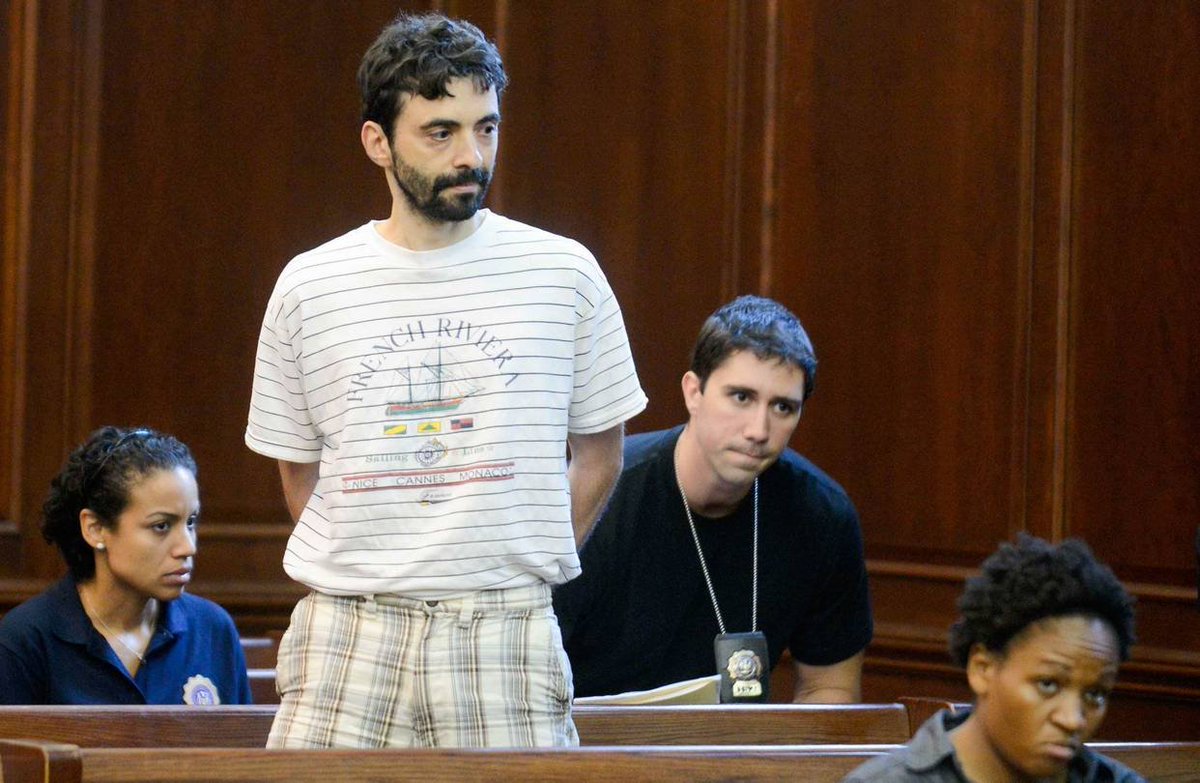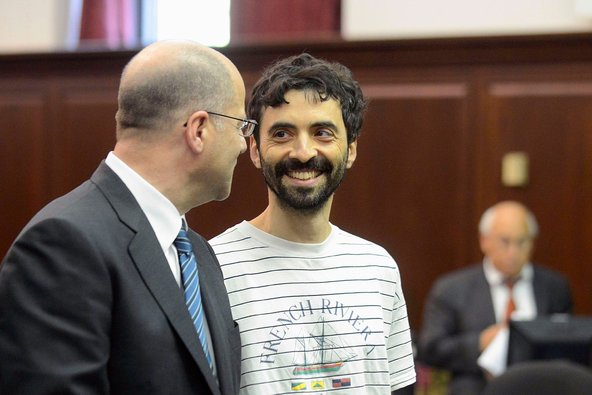In 2009, a Goldman Sachs programmer was arrested at Newark Airport. His crime? Stealing computer code. But this wasn't just any code – Goldman called it "the most substantial theft the bank can remember ever happening to it." Here's what they didn't want exposed: 🧵

Meet Sergey Aleynikov: a Russian programmer who earned $400K at Goldman Sachs working on their high-frequency trading system. In 2009, he accepted a new job at Teza Technologies for $1.2M. On his last day, he uploaded code to a server in Germany. Then all hell broke loose.
Content Warning: Adult Content
Click to Show
AD Required
When the FBI arrested Aleynikov, prosecutors called it "the most substantial theft the bank can remember ever happening to it." But what makes lines of code so valuable that a giant like Goldman would pursue criminal charges? The answer reveals Wall Street's true power center.
Content Warning: Adult Content
Click to Show
AD Required
Goldman's trading algorithm is their crown jewel – a system they bought in 1999 for $531M that generated millions in profits annually. But here's the thing: most people don't realize that modern markets aren't run by traders. They're controlled by algorithms.

These algorithms make thousands of trades per second – buying and selling before humans can even blink. They spot tiny price differences across markets. They predict tiny movements based on patterns. They operate in milliseconds where millions can be made or lost.
Content Warning: Adult Content
Click to Show
AD Required
During Aleynikov's trial, something extraordinary happened: The courtroom was sealed during testimony about the algorithm. Exhibits were hidden from public view. Goldman insisted on extreme secrecy about how their system actually worked. Why such paranoia?

The secrecy exists because Wall Street's algorithms are their competitive edge in a zero-sum game. If competitors knew exactly how Goldman's system worked, they could: • Copy it • Counter it • Front-run it Each algorithm is a proprietary money-printing machine.
Content Warning: Adult Content
Click to Show
AD Required
But here's where it gets interesting. Aleynikov claimed he only took code to separate open-source elements from proprietary parts "in case he needed to remind himself later." He compared his actions to "speeding in a car" – wrong, but not criminal.

The open-source angle matters deeply. Many Wall Street trading systems are built on modified free, open-source software. When Aleynikov once asked if he could return modified free software to the internet (standard practice), his boss replied: "it was now Goldman's property."
This reveals a fundamental tension in finance: Companies take freely available code, modify it for profit, then claim absolute ownership – enforced by criminal prosecution. It's like building a house on public land, then having someone arrested for walking past it.
Aleynikov made a stunning observation about Goldman's system: "I had a feeling no one at Goldman really knows how it works as a whole, and they are just uncomfortable admitting that." The algorithms had become black boxes – too complex for any single person to understand.
Content Warning: Adult Content
Click to Show
AD Required
When Aleynikov was convicted in 2010, he received an 8-year prison sentence – longer than many who committed violent crimes. But in 2012, the Appeals Court overturned his conviction. Why? Because source code didn't qualify as a tangible "good" under existing laws.
The legal reversal exposed a critical gap: Our laws weren't designed for digital property. Code isn't physical – it can be copied without taking the original. This gap was so significant that President Obama signed a law specifically to close it after Aleynikov's case.
Content Warning: Adult Content
Click to Show
AD Required
The case highlights a big issue. Programmers become specialists in proprietary systems that don't transfer well to other jobs. Their knowledge is valuable (Aleynikov's salary 3x!) but taking any code is legally dangerous.
This creates a paradox for talent: • Their expertise is worth millions • But they can't take their work products • Their skills are tied to systems they don't own • Moving jobs means starting from scratch It's knowledge purgatory.
The algorithmic revolution has transformed markets entirely: • Speed matters more than fundamentals • Computers make most trading decisions • Human traders are increasingly obsolete • The best algorithms can extract billions It's finance's industrial revolution.
Content Warning: Adult Content
Click to Show
AD Required
The algorithms running Wall Street remain hidden from public. Yet they shape our economy, move markets, and generate fortunes while most people sleep. If nothing else, the Aleynikov case pulled back the curtain – however briefly – on the true power center of modern finance.
Threads are the best way to be seen on 𝕏. My threads get ~2M views every 2 weeks and hundreds of new followers. If you want the same results, subscribe to my newsletter where I teach you how to write excellent threads 👉 http://storiesofexcellence.kit.com
I hope you enjoyed this thread. Did you know the story of Sergey Aleynikov? Follow @iamluismalheiro for more stories like this. And don't forget to share 👇
